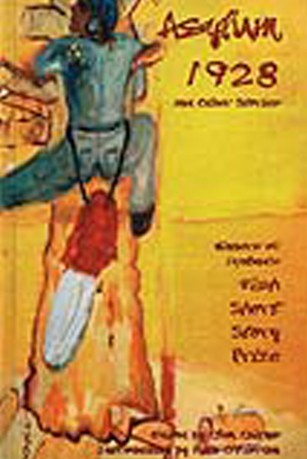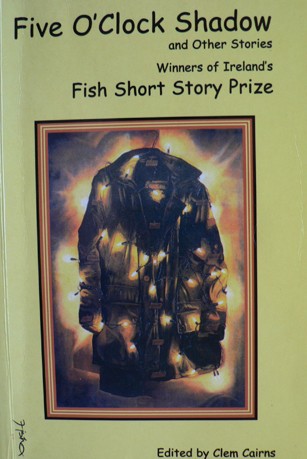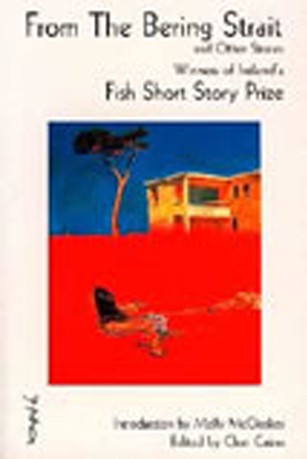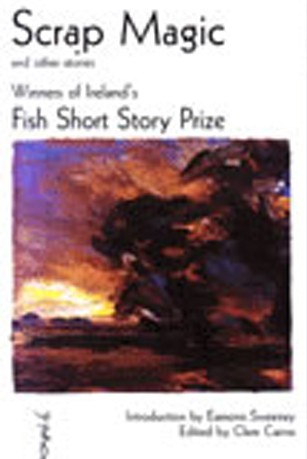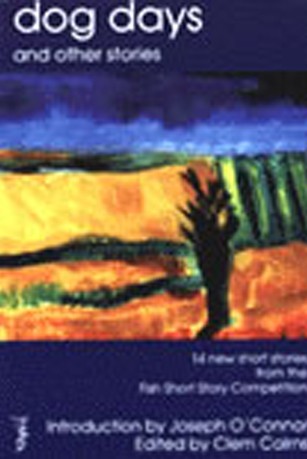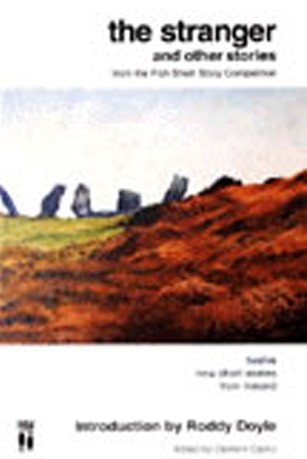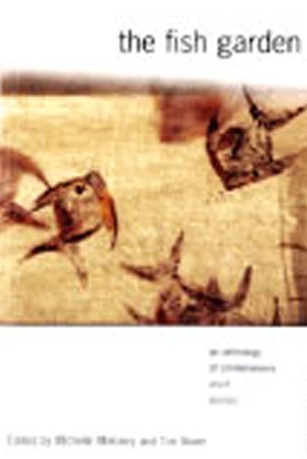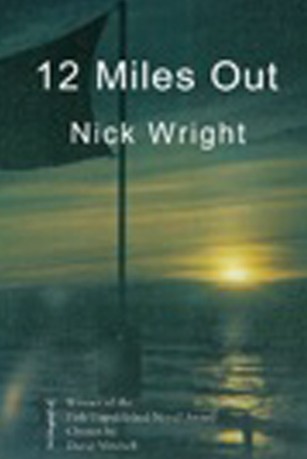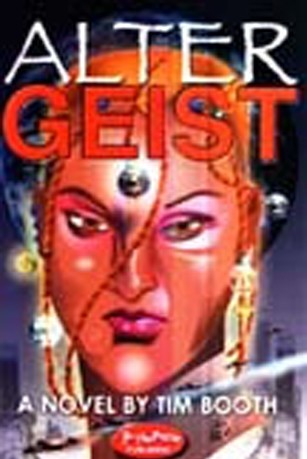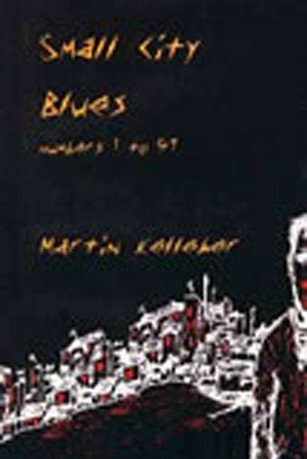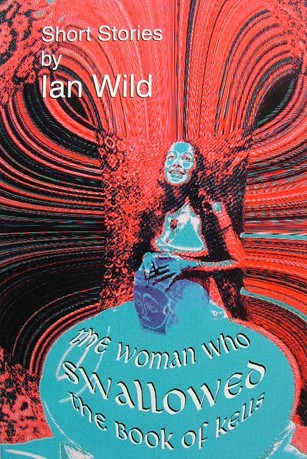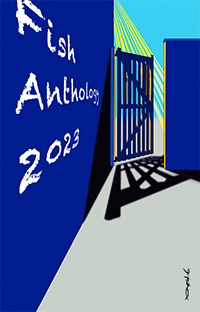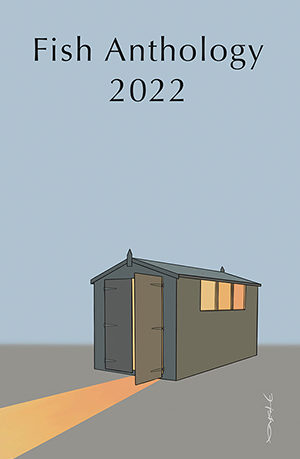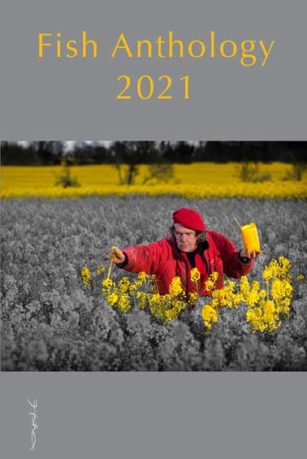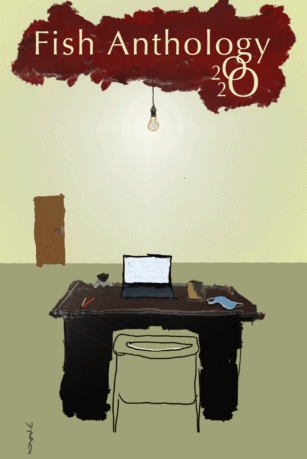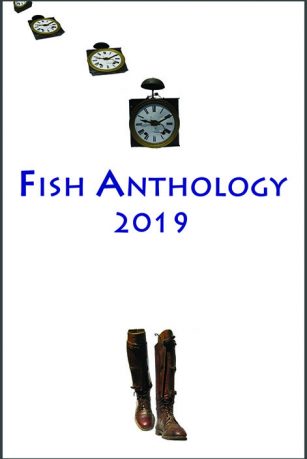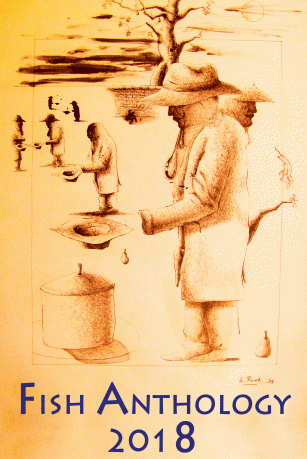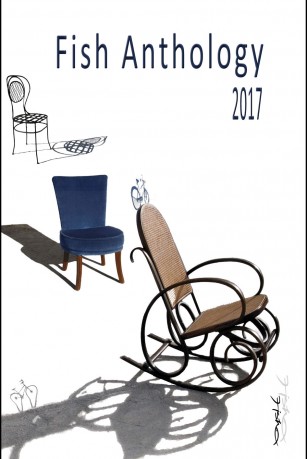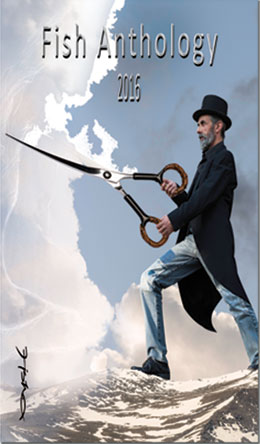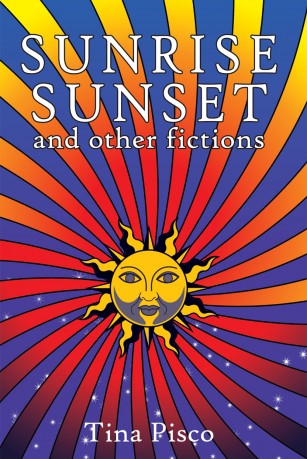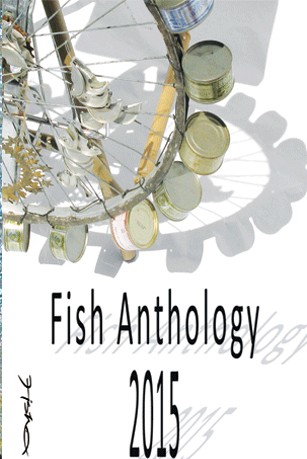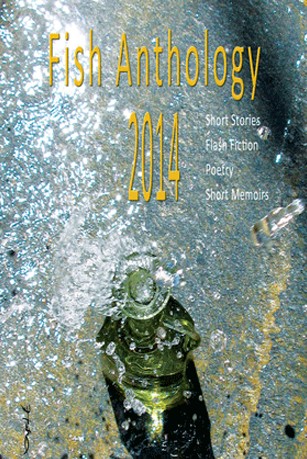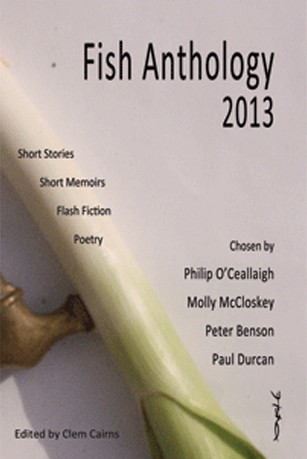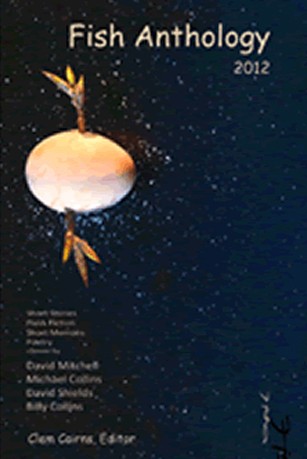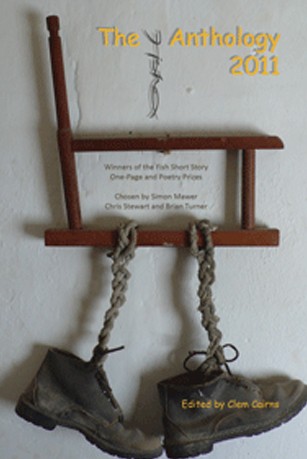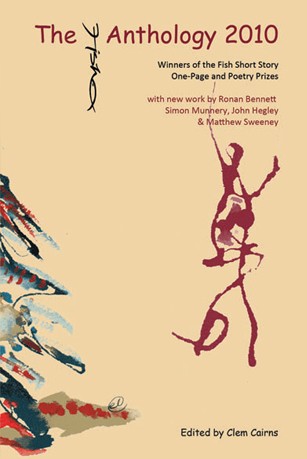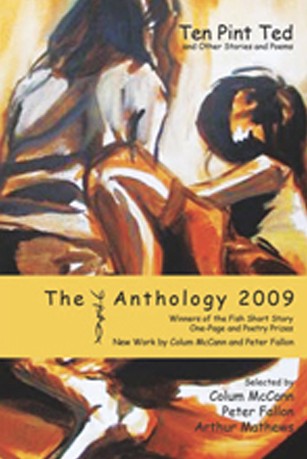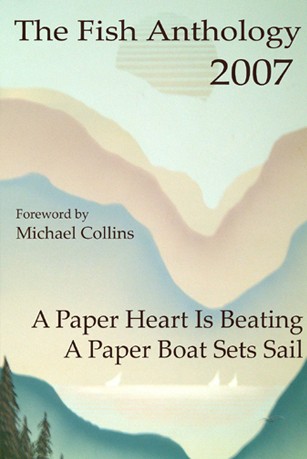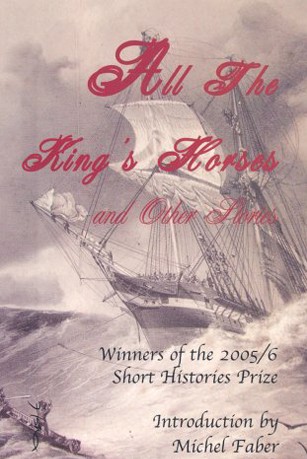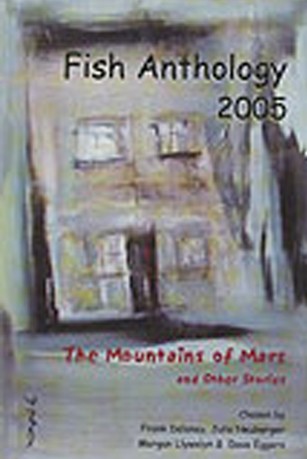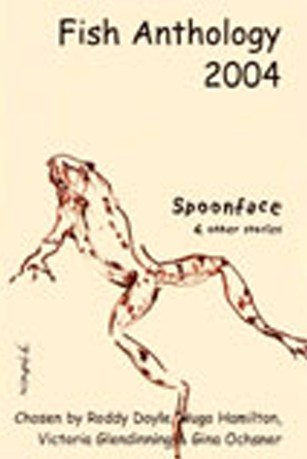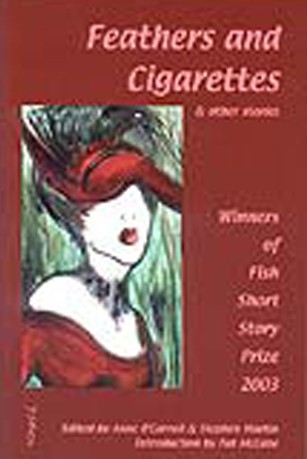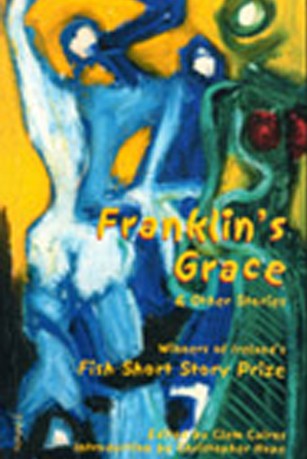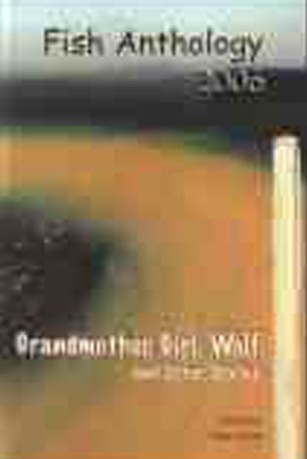
Fish Anthology 2006 – Grandmother, Girl, Wolf and Other Stories
ISBN: 0-9542586-4-9
Gerard Donovan speaks at the launch of Granmother, Girl, Wolf and Other Stories “When a writer is born into a family, that family is finished”: I don’t know the context in which Czeslaw Milosz wrote those words, but I want to believe that he was referring to the uncanny ability of the writer to delve into the illusions of wholeness we create through words such as “family” and “society” and “nation” and to expose the long, dark spaces that crowd hidden inside them. I want to believe that the writer’s vocation is to record, to be an unrelenting observer of the human act of living, and in a crafted manner to measure those spaces, expose them, celebrate them. The short story form presents the ideal ground for that single transformation that occurs-what we call a metaphor-and not two or three, but one thing transformed. A novel attempts many metaphors, a short story, one: an uncle may not be the man we think he is; a wife ultimately retains the memory of another’s kiss. Once a writer transforms the family into those disparate moments of sense–the stories that line up behind a smell, a texture–the family in that same moment is finished. In its place the writer, using the lie of fiction ( fictio : to shape), assembles truth from those hidden spaces. As Bill Buford notes, “Literature is always best when it is celebrating its subjects darkly.and because it is often by describing the thing lost–a family, a moment of happiness, a child, a father–that we understand the full weight of what we had.” The best stories create an art that is intimate and universal at the same time. A story of one family seeking asylum becomes the story of all who seek better lives, even in their own country and without leaving port. Craft alone won’t do it. Sooner or later you have to leave the dialogue and plot and setting behind and trust yourself to tell a story of the human heart, which means eventually exposing your own. And yet craft can produce wonders. Take the first sentences from Katie Henderson’s winning story, Grandmother, Girl, Wolf : “At the beginning, there is an old woman. Babka. I watch her peel the cloth from a lump of clay.” Note that the writer employs “at” the beginning” and not “in.” Another writer might have chosen ‘in,” but the “at” takes time from the beginning and places it alongside the action, because beginnings aren’t necessarily uniform events, and the dislocation that informs much of her story lives in the first three words. Then comes her choice of the present tense, since a beginning can only have the present. A past has not yet been created: you get to the past through the present. And after that of course you have the problem of the future, which will have the toughest time establishing itself. All this in the first one and a half lines. What craft promises is, literally, a finish: the writer polishes the story into a form that pleases and has proportion. And perhaps that might provide us with another reading of Milosz’s observation, that a family is “finished” in the sense that it is presented. It was my pleasure to serve as one of the three judges for the Fish Short Story Prize. For those who did not win a prize, please remember that many of the best artists never won a prize at any point in their lives, and for a story to have reached the anthology stage of the competition alone means that it has survived much critical scrutiny. Shortly the authors will read from their work; in the meantime I am happy to declare the anthology launched”. – This speech was given by Gerard Donovan for the launch of the 06 Anthology at the West Cork Literary Festival on 3 July 2006. From the Foreword by Clem Cairns, Founder of Fish Publishing Short stories give us a glimpse of the concerns of people and society generally, at a point in time, almost like a poll coming up to an election, that fails to ask a specific question. In one year there might be a preponderance of stories with suicide as a theme. Another year it might be the failure of relationships or fear of loneliness and old age. You get the insight from each individual story, along with the general one. The one Page Story gives us a glimpse of something else. It is, quite frankly, too short to take the pulse of the zeitgeist. They are tiny. 250 words is not enough to explore a theme or develop a character. They often resemble a needle bursting a balloon. I think that they show the relative health of the contrariness, the anarchy, the subconscious subversion that is out there working away at undermining every precept, pretension and pillar we erect to hold the fortress of our cultural and moral cohesion. And they can be great fun. For the first time there is poetry in a Fish Anthology. Poetry is dodgy stuff. It can be difficult to read, impenetrable, labyrinthine, confusing, enlightening, intoxicating and brilliant and bad. What could be worse than a poem that just doesn’t work, or more wonderful that one that simply does? They rattle you at a different vibration than most Short or One Page stories, as though they are made from the same raw material as dreams and nightmares. We put them all at the centre of the anthology where they can hum and radiate. There is, as there always is, a wide geographic spread. The winner of the Short Story Prize, Katie Henderson, is a New Zealander, and the first from that country to win the prize. Clorinda Smith from Suffolk won the One Page Prize, and the winner of the Poetry Prize, Richard Rudd, is from Devon. Of the five poets, three are from Ireland. For the rest of the anthology, the writters come mostly from the Americas and Europe, and a single Australian. The aim of this anthology is to promote excellence in short fiction, and to help writers along the path to fulfilling their ambition. Sean Lusk appears ina Fish Anthology for the second time and is thereby prevented by the rules from entering the Fish Short Story Prize again. One of the most talented and versatile writers we have had the honour to publish, we wish him every success. Last year his story A Burning and a Smudging was short listed to the last three, but he had to withdraw it for personal reasons, missing out on the chance of winning the overall prize and €10,000. I hope to see it in print some day. Congratulations to all the writers in this anthology, and may you all prosper. – Clem Cairns, Durrus, 2006.
Contents
Grandmother, Girl, Wolf – Katie Henderson Beach – Amy Sackville Counterparts – Courtney Zoffness Out of Order- Clorinda Smith Christmas – Owen Egerton The End – May Williamson The Poisoned Well – Alexandra Fox Snowing in Berlin – Sarah MacLeod Cries from the Heart – Margaret Ahmed Egyptian Embalmers Last Wish – Jane Rusbridge One Love – Chris Barnham Blow In – Maire Winters Thank You – Martin H. Bott Thump Sandwich – Tessa Sheriden Trees – Jason Brown The Siren Lovers – Richard Rudd Three Nuns in a Pickup – Terry McDonagh We Stared at Stars – Mary O’Gorman After Vermeer – Sue Wood Retired – Breda Sullivan Simon’s Skin – Vanessa Gebbie Black Blood – Robert Dailey Sudden Sceptic – Alison Grove Magic Wish – Christine Donovan You Talk – Eitan Muller Someone to Watch Over You – Sean Lusk Afternoon Friday – Sarah Wright The Glass Bitch Defines an Atomic Age – D.K. McCutchen The Chorus – Erin Soros Salt and Pepper – Jacqueline Winn The Butcher’s Music – Jacob M. Appel


